Clancy Tucker's Blog, page 187
May 21, 2017
22 May 2017 - WEIRD STUFF

WEIRD STUFF
G'day folks,
Welcome to some more weird stuff from around the globe.
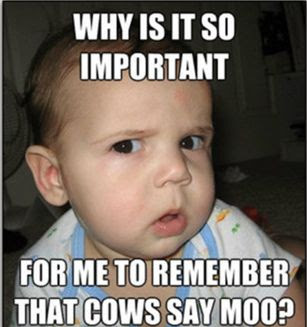



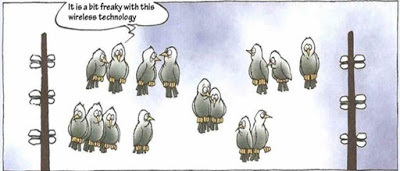


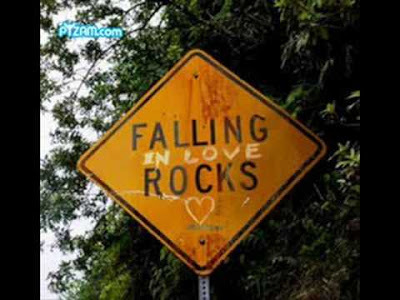
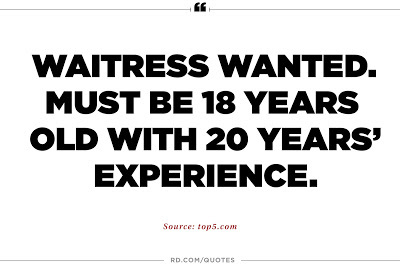
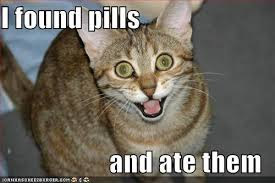

Clancy's comment: I think that cat did really eat those pills.
I'm ...


Published on May 21, 2017 15:13
May 20, 2017
21 May 2017 - GREAT CAT FIGHTS
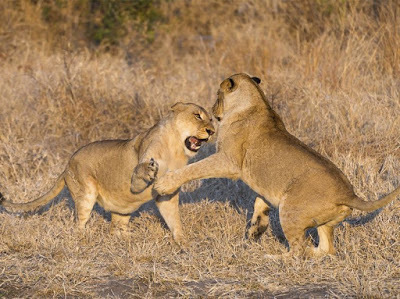
GREAT CAT FIGHTS
G'day folks,
Here are a few cat fights you want to avoid ...




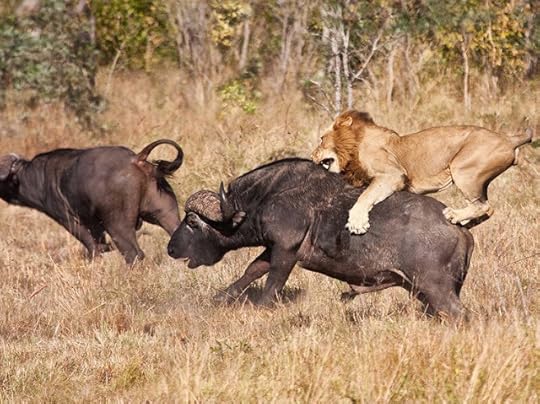

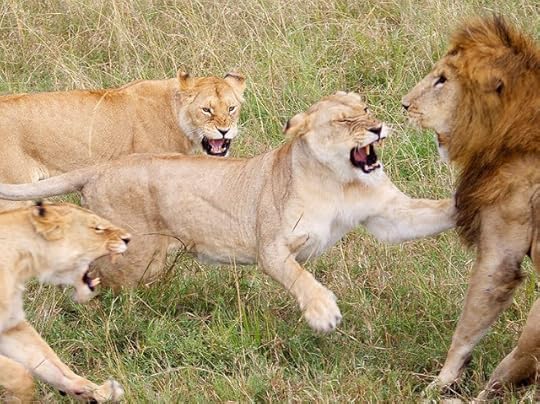
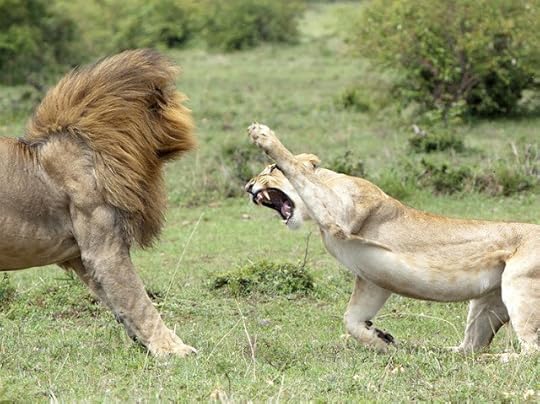


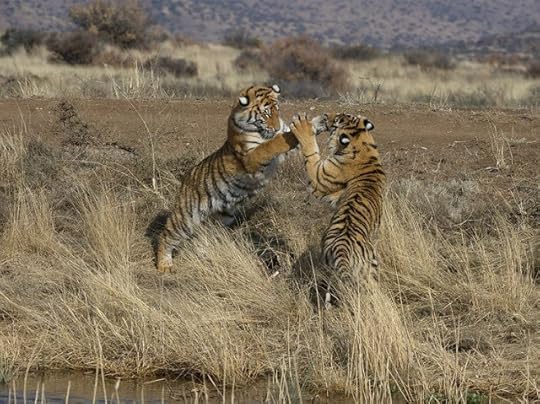
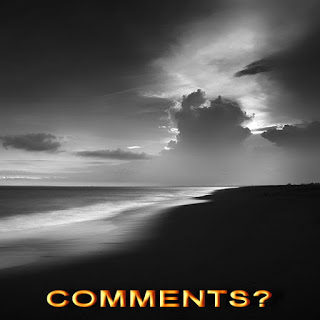
Clancy's comment: Grrrrrrrrrrrrrrrrrrrrrrrrrrrr! Wow, check out those teeth.I'm ...


Published on May 20, 2017 15:45
May 19, 2017
20 May 2017 - LOVE CONQUERS ALL

LOVE CONQUERS ALL
G'day folks,
To say that Richardand Mildred Lovingwere reluctant heroes would be an understatement. Richard, with his platinum blonde crew cut, backwoods accent and taciturn ways, looked more like a caricature for a white supremacist. And then there was Mildred. A soft-spoken, shy woman of African and Native-American descent, she possessed a quiet charm but like her husband, had no desire to bring attention to herself.
But the attention would come, and it would change the course of American history. In 1958 the couple were jolted out of their bed in the middle of the night and arrested by local Virginia police. Their crime: Violating the Racial Integrity Act of 1924, which forbid interracial marriage. Although the Lovings were legally married in Washington D.C., the state of Virginia, which the couple made their home in, was one of more than 20 states that made marriage between the races a crime.
A local judge allowed the Lovings to flee the state to avoid prison time. The couple decidedly moved to D.C., just two hours away from Virginia, but for the two of them, their whole world — along with their family and friends — was wrapped up in their tiny farming community of Central Point, Virginia. They were simple people who wanted to live a simple life, and they were determined to go back home. After living the next five years in exile and raising their three children, Mildred found an opening.
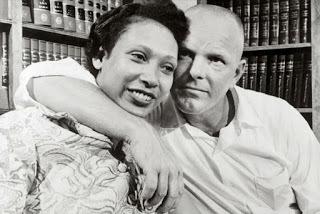
Feeling empowered by the Civil Rights Movement, Mildred wrote to Robert F. Kennedyin 1967 asking for counsel. Kennedy referred her to the ACLU, and it was there that their case eventually went to the Supreme Court. The judges unanimously ruled in favor of the Lovings with Chief Justice Earl Warren writing “the freedom to marry has long been recognized as one of the vital personal rights essential to the orderly pursuit of happiness by free men.”
The historic ruling led to the overturning of similar statutes in more than a dozen states and ultimately marked the end of segregation laws in America. But for the Lovings, the ruling was simply the freedom to go home and to continue on with their lives, this time, loving without fear.
Although Richard died in 1975 following a car accident, Mildred was able to live long enough to offer her support for gay marriage. On the 40th anniversary of the Lovings' landmark case and a year before her death in 2008, she said in a public statement: “The older generation’s fears and prejudices have given way, and today’s young people realize that if someone loves someone, they have a right to marry.”
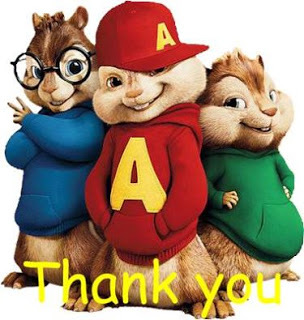
To look at the Lovings' legacy (along with their improbable last name), they make the saying "love conquers all" that much more believable.

Clancy's comment: Good on them. Everyone deserves a slice of happiness ... Especially kids.
I'm ...
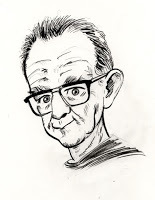

Published on May 19, 2017 15:25
May 18, 2017
19 May 2017 - ARCHIE ROACH - Soul Singer
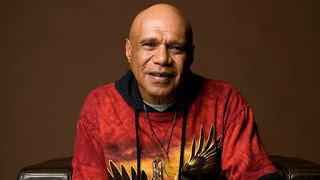
ARCHIE ROACH- Soul Singer -
G'day folks,
Archie Roach is a soul singer, in the true sense of the word. His lyrics are uniquely Australia and undeniably universal and he is one of our most respected, beloved and admired singer/songwriters.
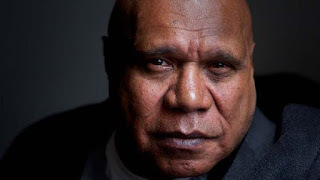
Archie first came to the attention of most Australians with the release of his debut album “Charcoal Lane” in 1992. The album launched his career and “Took The Children Away”, his own story of the stolen generations, heartbreakingly captured the human cost of government policy. Since then he has released 10 albums, including several with his life partner Ruby Hunter, a number of movie soundtracks, and a box set retrospective of his first four albums. His critically acclaimed latest album, “Into the Bloodstream” has been described as “an inspirational comeback” (Mess & Noise), “a triumphant return” (ABC online) and “amongst his best work” (AU Review).
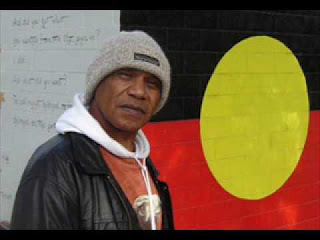
Archie’s work has been recognised locally and internationally, in mainstream and indigenous circles. As well as five Arias and seven Deadlys, including Outstanding and Lifetime Contribution Awards, he has won three National Indigenous Music Awards (NIMA) and was inducted into the NIMA Hall of Fame in 2013.
He was the first songwriter to receive a Human Rights Achievement Award (for “Took The Children Away in 1992) and has toured with some of the world’s most iconic artists, including Bob Dylan, Tracy Chapman, Billy Bragg, Paul Simon, Joan Armatrading, Suzanne Vega and Patti Smith. In 2013, “Took The Children Away”, was added to the National Film and Sound Archive in Canberra, as part of the Sounds Of Australia collection.
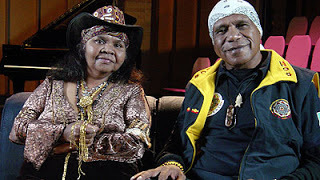
Despite the loss of his partner Ruby Hunter in 2010 and major health problems including a stroke and cancer, Archie Roach continues to record and perform, taking strength and inspiration from his music. He has shared the stage with local and international musical icons and is as comfortable performing on an outback stage as a concert hall or in front of 84,000 football fans at the MCG. Whether holding just his acoustic guitar, or walking on stage with a 13-piece band and 10-voice indigenous gospel choir, Archie’s music speaks the stories of his people, of this land and of the human condition.
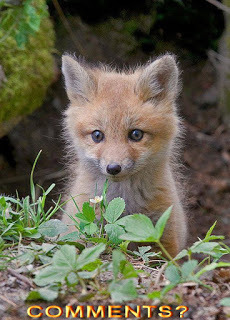
Clancy's comment: Love ya work, Archie!
I'm ...

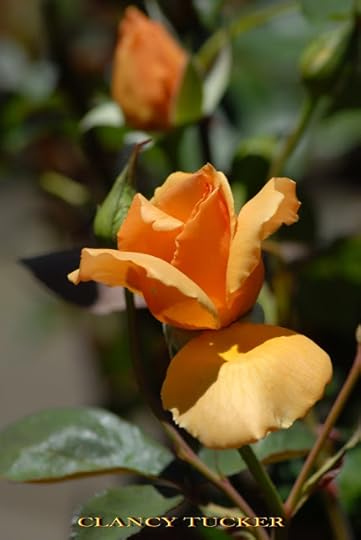
Published on May 18, 2017 15:48
May 17, 2017
18 May 2017 - LOST WORDS

G'day folks,
Check out these words. Know any? Do you use them?
fabrefaction n 1652 -1678 act of fashioning or making a work of art The sculptor felt that fabrefaction was more important than the end result.
fallaciloquence n 1656 -1761 deceitful speech Your fallaciloquence, though charming, will not convince the jury to acquit.
famelicose adj 1730 -1775 often or very hungry The tribe's crops frequently fail, and their children are famelicose.
famigerate v 1623 -1736 to carry news from abroad The bloggers famigerated about the conditions in the war-torn country.
ficulnean adj 1716 -1716 of fig-tree wood; worthless His ficulnean arguments failed to convince his professor to raise his grade.
filicology n 1884 -1884 study of ferns Filicology is a discipline for which paleontological training is a great asset.
findible adj 1656 -1790 able to be cleft or split This pie is perfectly findible, if we can agree to some simple rules for cutting it.
flosculation n 1651 -1651 an embellishment or ornament in speech The speaker's lecture was rendered laughable by ridiculous flosculations.
foppotee n 1663 -1663 simpleton What a pitiful foppotee he was, always oblivious to our jeers!
frenigerent adj 1656 -1681 bearing a bridle The frenigerent filly flew fast from the fire.
fumificate v 1721 -1792 to make or cause smoke or incense The only problem with the new grill is its tendency to fumificate.
gardeviance n 1459 -1706 chest for valuables; a travelling trunk She kept her linens in that old gardeviance for over sixty years.
gardevisure n 1610 -1840 visor of a helmet as shown on heraldic devices Since you're so ugly, why not place a gardevisure on your coat of arms?
gaudiloquent adj 1656 -1727 speaking joyfully or on joyful matters Her gaudiloquent tone was thought excessively perky by the stodgy faculty.
gelicide n 1656 -1681 a frost Unfortunately, the flowers were killed too soon by an early gelicide.
gipseian adj 1749 -1749 belonging or pertaining to gypsies The gipseian rhythms made her feel as if she were in the Middle East.
gleimous adj 1398 -1790 slimy; full of phlegm Its gleimous tongue slipped between its teeth and ensnared the moose.
gnathonize v 1619 -1727 to flatter I can tell that you're just trying to gnathonize me, you sycophantic buffoon!
graocracy n 1830 -1830 government by an old woman or women High voter turnout among elderly women may soon lead us into a graocracy.
graviloquence n 1656 -1656 grave speech The bishop's funeral orations were known for their graviloquence.
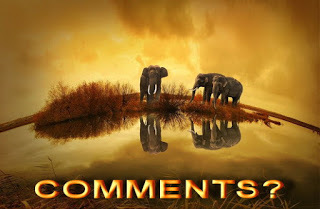
Clancy's comment: Wow. I don't think I will be using any of these in future books. If I did, I'd have to sell my books with an old world dictionary
I'm ...


Published on May 17, 2017 15:52
May 16, 2017
17 May 2017 - FAMOUS AUTHORS REJECTED

FAMOUS AUTHORS REJECTED
G'day folks,
Here are some more examples of famous authors rejected.
Sylvia Plath
According to one publisher, Ms. Plath's ability as a poet was nothing special:
There certainly isn't enough genuine talent for us to take notice.
E E Cummings
Mr. Cummings’ first work, The Enormous Room, was rejected by 15 publishers. He eventually self-published the book and it went on to become considered a masterpiece of modern poetry. The kicker? He dedicated the book to the 15 publishers who rejected him. Ouch.
Irving Stone
Mr. Stone’s Lust for Life was rejected 16 times, once with this helpful synopsis: A long, dull novel about an artist.
The book went on to sell over 25 million copies.
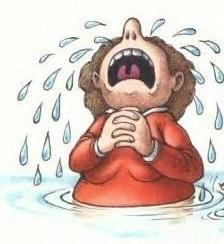
Rudyard Kipling
I’m sorry Mr. Kipling, but you just don’t know how to use the English language.
These were the words used by one of the editors of the San Francisco Examiner newspaper when rejecting one of Mr. Kipling’s short stories. Mr. Kipling is now a revered author and the San Francisco Examiner is….
Frank Herbert
Dune was rejected 20 times before successfully reaching print – and becoming one of the most beloved science fiction novels of all time.
Richard Adams
Mr. Adams' Watership Down was rejected since Older children wouldn’t like it because its language was too difficult.
Madeleine L'Engle
Ms. L'Engle's A Wrinkle in Time was rejected by 26 publishers before finally breaking into print. It went on to win the 1963 Newbery Medal.

Clancy's comment: Mm ... I hope this post inspires and encourages you writers. Keep at it. Prove them wrong.
I'm ...
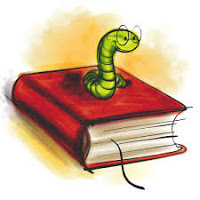

Published on May 16, 2017 15:25
May 15, 2017
16 May 2017 - ZELDA FITZGERALD
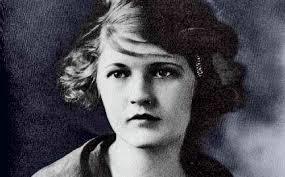
ZELDA FITZGERALD
G'day folks,
Zelda Fitzgerald was an American socialite and novelist, and the wife of American author F. Scott Fitzgerald. Born in Montgomery, Alabama, she was noted for her beauty and high spirits, and was dubbed by her husband as "the first American Flapper".
Synopsis
Zelda Fitzgerald was an icon of the Roaring Twenties. A socialite, painter, novelist, and the wife of American author F. Scott Fitzgerald, Zelda Fitzgerald's audacious spirit captivated those around her and she was a muse for much of her husband's literary work. Their famously turbulent marriage was fraught with alcoholism, violence, financial ups and downs, and Zelda's battle with mental health issues. Her own artistic endeavors include a semi-autobiographical novel, Save Me the Waltz, a play entitled Scandalabra, as well as numerous magazine articles, short stories and paintings. She died tragically on March 10, 1948 in a fire at Highland Hospital in Asheville, North Carolina.
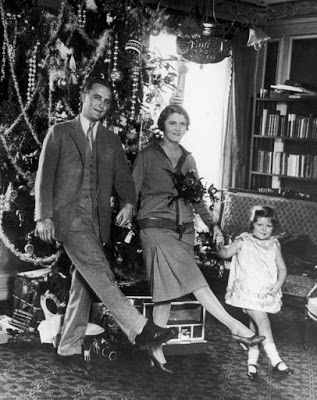
Early Life and Marriage Zelda Sayre Fitzgerald was born in Montgomery, Alabama on July 24, 1900. The daughter of a prominent judge, Anthony Dickinson Sayre (1858–1931), who served on the Supreme Court of Alabama, and Minnie Buckner Machen Sayre, she was the youngest of five children and lived a youthful life of privilege. As a teenager, Zelda was a talented dancer and socialite who challenged the gender norms of her time by drinking, smoking and spending much of her time with boys.
In 1918, she graduated from Sidney Lanier High School and soon after she met F. Scott Fitzgerald at a country club dance in Montgomery. He was captivated by Zelda’s audacious spirit and brash risqué demeanor, but due to his inferior social standing, the debutante declined his initial marriage proposal in 1919. Later that same year, Zelda accepted F. Scott’s marriage proposal after Scribner’s agreed to publish his book, This Side of Paradise. The couple married on April 3, 1920 in New York City—just one week after his first book hit the market. Due to the instant success of This Side of Paradise, the duo became overnight celebrities and indulged in the exuberance of the Roaring Twenties.
On Valentine's Day in 1921, Zelda learned she was pregnant. On October 26, 1921 in St. Paul, Minnesota, the couple welcomed Frances "Scottie" Fitzgerald to their family. Soon after, the family moved to Long Island, New York, but faced with financial ruin due to their excessive spending habits, the family moved to France in 1924 where F. Scott composed The Great Gatsby and Zelda learned to paint. The family briefly returned to America and spent time in Wilmington, Delaware, but ever-eager for a change of pace, in 1927, Zelda added ballet to her list of talents and when they traveled back to Paris, she was invited to dance with the Royal Ballet of Italy in 1928—an offer she declined in lieu of writing short stories.
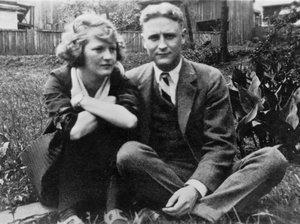
Spiraling Downward
Zelda was a muse to F. Scott and her characteristics are prominently featured in some of his most notable works including This Side of Paradise, The Beautiful and the Damned, The Great Gatsby and Tender Is the Night. F. Scott even went so far as to steal verbatim excerpts from Zelda’s personal diary and incorporate them into his novels—a tactic that began a downward spiral in their dysfunctional marriage fraught with alcoholism, violence, and mental health concerns.
When the stock market crashed in 1929, their over-the-top lifestyle of travel and indulgence collapsed and they were left in financial ruin. In 1930, Zelda was diagnosed with schizophrenia and spent her remaining years in and out of various mental health clinics. The family was hit hard by The Great Depression and left penniless. In the end, Zelda’s marriage to F. Scott was nothing more than a façade. F. Scott died from a heart attack at the age of 44 on December 21, 1940.
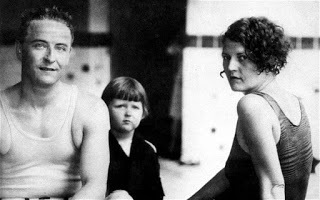
Final Years Due to Zelda’s failing health, she was unable to attend her daughter’s wedding in 1943, but after the birth of her grandson, Zelda was reinvigorated and began to paint again in the last years of her life in Montgomery at her family’s homestead. Ultimately, however, her mental health began to fail and, on March 10, 1948, she died tragically in a fire at Highland Hospital in Asheville, North Carolina. She is buried with her husband in Old Saint Mary's Catholic Church Cemetery in Rockville, Maryland. She was working on her second unfinished novel, Caesar's Things, at the time of her death.
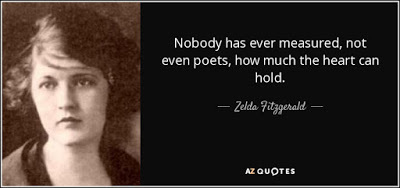
Legacy
Despite her tumultuous marriage and difficulties with mental health issues, Zelda’s creativity was inspirational. Her artistic endeavors include a semi-autobiographical novel, Save Me the Waltz, based on her troubled marriage, a play entitled Scandalabra, as well as numerous magazine articles and short stories. A talented painter, her oil paintings are now prominently featured in the F. Scott and Zelda Fitzgerald Museum in Montgomery, Alabama. In 1992, Zelda was inducted into the Alabama Women's Hall of Fame and, in 2017, her life was dramatized in the TV series Z: The Beginning of Everything, starring Christina Ricci. Although she served as a muse to her husband, it is clear that she was also a creative force to be remembered.

Clancy's comment: A troubled life, eh? Note: Although not deliberate, it would seem that I often feature famous people who died early in life.
I'm ...


Published on May 15, 2017 15:37
May 14, 2017
15 May 2017 - ANIMALS AND HUMOUR
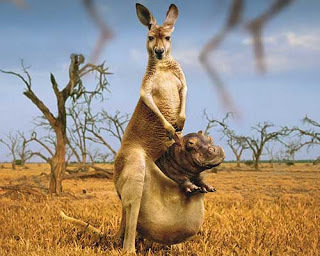
ANIMALS AND HUMOUR
G'day folks,
Brace yourself for some more humorous shots of animals.
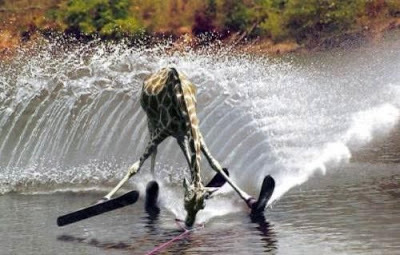
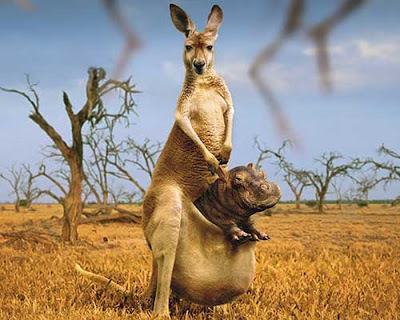
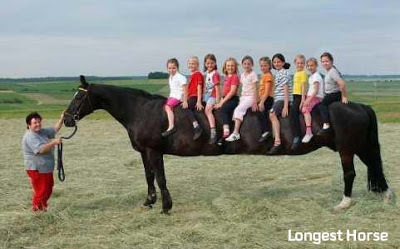

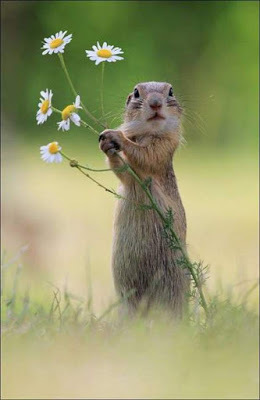


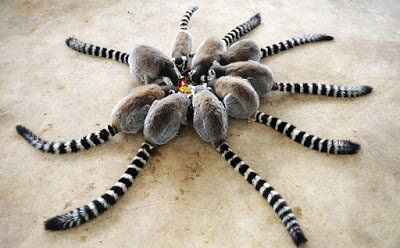
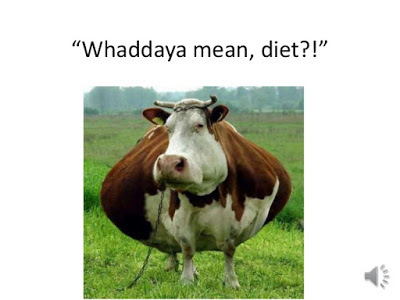
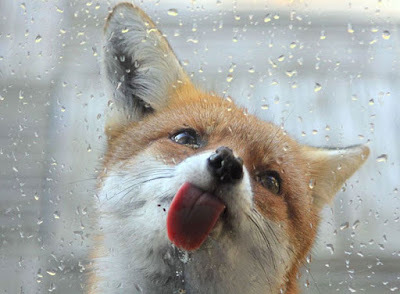
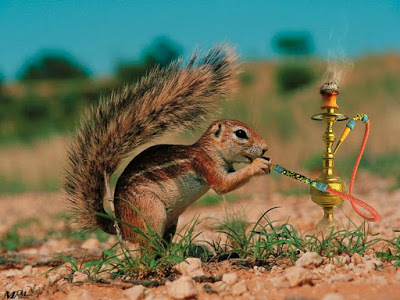
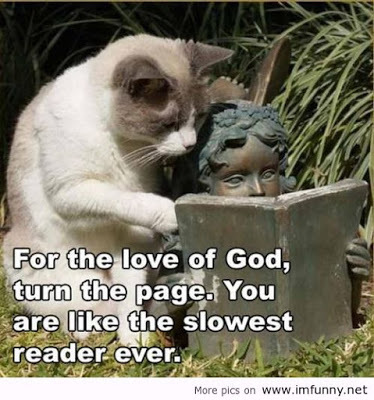

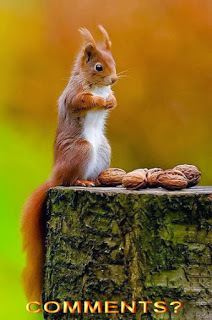
Clancy's comment: Very cute, eh?
I'm ...


Published on May 14, 2017 16:06
May 13, 2017
14 May 2017 - RAYMOND WALKER - Guest author

RAYMOND WALKER - Guest Author -
G'day folks,
Today, I interview a very interesting author from the UK.
Welcome, Raymond ...
1. TELL US A LITTLE ABOUT YOURSELF AND YOUR WRITING JOURNEY.
“There is little to tell. I grew up in a small seaside fishing town and there was little to do other than read or make up stories about the things around me. The strange thing is; there was so much around me that was interesting that I never even noticed at the time. I did not know this when young but as the years passed I started to realise that there was a Broch on our land that had existed for five thousand years. Kildonan dun, a place that I played as a child, was two thousand years old. A stone circle sat above the farm that had been there for almost five thousand years. I took part in my first archaeological dig when I was only twelve. It was on our land, an old burial mound.
2. WHEN AND HOW DID YOU BECOME A WRITER?
“I started writing early, loving those tales and histories and folk stories that I heard passed around when grownups came together. I tried to gather their thoughts and Idea’s in my jotter’s and school books. These things, were you to look back upon them now would be considered flawed and terrible but I was young.
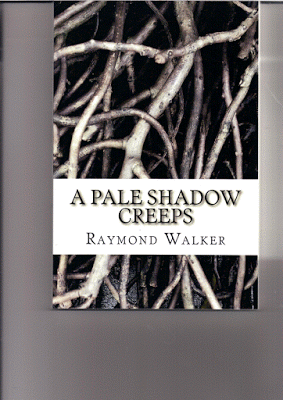
3. WHAT TYPE OF PREPARATION DO YOU DO FOR A MANUSCRIPT? DO YOU PLAN EVERYTHING FIRST OR JUST SHOOT FROM THE HIP?
I tend to just run with things when I wish to tell a tale but if you are seeking a longer novel then planning should be considered. I am just silly in the way that I do things.
4. WHAT DO YOU ENJOY MOST ABOUT BEING A WRITER?
I like both the mystique and the joy that I bring to myself and others. I have no great agenda, I will not change the world with my thoughts and writing but I do tell some great stories along the way. Or at least I like to think that I do.
5. WHAT IS THE HARDEST THING ABOUT BEING A WRITER?
There is nothing that is difficult about being a writer apart from two silly things. The ability to make people wish to read your writing’s and the ability to keep them engaged. Something that I fail at on occasion.
6. WHAT WERE YOU IN A PAST LIFE, BEFORE YOU BECAME A WRITER?
I started out life as a “Polymer Technologist”, Plastics, essentially, but as that industry left the UK and made its way to South America, China, India and the middle east I was left without a job. I started writing again, Books, Magazine articles, anything that would sell.
7. WHAT IS YOUR GREATEST WRITING ACHIEVEMENT?
I am lucky enough to have seen a little success. I suspect that accolades should be mentioned here and I have had a few. The Guardian (British quality newspaper) Named me as the fiction writer to watch. I received the accolade of second best new short story writer of the twenty-first century and also, came third in the greatest short story of all time competition. Poetry monthly Suggested that “A Shiver” was the greatest book ever written. But I think that the greatest accolade I have ever had came when Ian Banks said “I like this menacing beauty”.
8. WHAT ARE YOU WORKING ON AT THE MOMENT?
I am working on a few books at the moment. The first to be published will be “Winters Ghost”. Which surprise, surprise will be a strange tale
9. WHAT INSPIRES YOU?
Reading, information, films, news; anything that gives me sensory input of any sort.
10. WHAT GENRE DO YOU WRITE?
I write in whatever genre takes my fancy at the time. I have written fantasy novels, Ghost stories, Sci-fi novels, Romances, contemporary fiction, predictive fiction, Horror and in a few other fields but I suspect that I am best known for my rather twee fantasy romance novels.
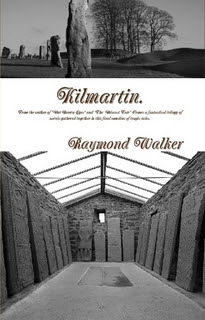
11. DO YOU HAVE ANY TIPS FOR NEW WRITERS?
Stick to what you do best even if it is unsuccessful. Stick with it as it may again become a fashion. I have been too ready to try new things, genres and ideas but that is not always the best thing to do, setting me back at times as regular readers were put off by new directions and ideas.
12. DO YOU SUFFER FROM WRITER’S BLOCK?
Never.
13. DO YOU HAVE A PREFERRED WRITING SCHEDULE?
I like to write all the time but that is not always possible and so, when able I like to write in the evening with the candles lit and the rain beating upon the windows feeling warm and safe in the flickering candle glow as the night rants and raves at my window.
14. DO YOU HAVE A FAVOURITE WRITING PLACE?
My dining room, It is a warm place, painted a dark dusky rose, filled with candles and original oils. The walls lined with bookshelves. The books are interspersed with Celtic and Norse art, candle sconces haunt every wall with flickering flame. It is warm, comfortable and suitably gothic.
15. WHAT IS YOUR GREATEST JOY IN WRITING?
I like most things about writing, I enjoy the creation and fun of putting the story together and the fact that it might amaze and educate. I like the joy of making a joke or even addressing something that I think wrong in today’s society.
16. WHO IS YOUR FAVOURITE AUTHOR AND WHY?
I cannot answer this question, I doubt that any author could. To be an author you have to be a reader or at least that is the first stage in the equation. So, I have read widely and many authors are my favourites. On Monday it could be FMA de Voltaire, on Tuesday it could be Isaac Asimov, Wednesday; Dickens, Thursday; Dan Simmons, Friday; Paul Hoffman (best first line ever) and so on. The next week would be different again, and the next.
17. WHAT’S THE GREATEST COMPLIMENT YOU EVER RECEIVED FROM A READER?
In all honesty, I cannot answer this question. Strangely the comment came from the worst book that I have ever written. At least one person liked it.
18. WHAT WAS THE WORST COMMENT FROM A READER?
I am lucky enough to get very few bad comments but like all authors I do receive the odd dodgy one. I could not tell you the worst as I must have put it out of my mind. Instead I will tell you of a very odd one. Many years ago, I wrote a book, a contemporary romance, the book cover said so, the blurb said it was a romance. It looked and felt like a romance, generally because it was; a romance. Mainly it gained good reviews, as a romance but one bucked the trend. I still remember it. “I hate romances, this is a romance, why do people have to write romances, it’s just rubbish, but all romances are. I hate romances”.
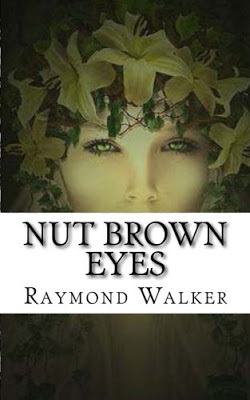
19. WRITERS ARE SOMETIMES INFLUENCED BY THINGS THAT HAPPEN IN THEIR OWN LIVES. ARE YOU?
Always and all the time. Everything that I write comes from imagination and memory. Almost all that you read in some way is real even in the oddest story or creative fantasy.
20. DID YOU HAVE YOUR BOOK / BOOKS PROFESSIONALLY EDITED BEFORE PUBLICATION?
My job is an editorial one. I run a magazine and so should be able to edit myself. The strange thing is you can never truly edit your own work. It is too personal, to close to your heart, thought and mind. You need a distinct other to edit your work and make it great. Of course, monetary aspects come to mind. Another author makes a great editor, perhaps you can swap. It is, after all, what Dickens did.
21. DESCRIBE YOUR PERFECT DAY.
I cannot, like naming a favourite author each day will be its own and one day may be wonderful due to one thing and another will be better due to many things.
22. IF YOU WERE STUCK ON A DESERT ISLAND WITH ONE PERSON, WHO WOULD IT BE? WHY?
I was tempted to say “François Maree Arouet, but I think that he may become irritating after a while despite the fact that I am a disciple. Can I choose a female Porn star? She may occupy my days.
23. WHAT WOULD YOU SAY IF YOU HAD THE CHANCE TO SPEAK TO WORLD LEADERS?
For goodness sake, Global warming is real, Carbon emissions are too high. You wish for power, I accept that, but do you wish for power over a land that cannot support life?
24. WHAT ARE YOUR PLANS FOR THE FUTURE?
I have none other than to keep on doing what I am already doing. I am no longer a young man and I am happy with my life and my way of life. I do not seek nor wish to change it.
25. WHAT ARE YOUR VIEWS ON BOOK TRAILERS? DO THEY SELL BOOKS?
I have a few book trailers here and there. I do not think that they help other than ion an immensity view. The more that you throw at readers the more they may respond and buy your book.
26. DO YOU SEE YOURSELF IN ANY OF YOUR CHARACTERS?
Almost all my male characters (in some way) are me, and so, of course, I do see myself in them
27. DOES THE PUBLISHING INDUSTRY FRUSTRATE YOU?
The publishing industry frustrates everyone. The key word, however, is industry. As an industry, they are out there, like any other industry to make money, both as a business and for their shareholders. Nor should they do otherwise. I grow frustrated with them much as others do simply because they do not choose my book. Were I the publishing house I would not choose the majority of my books.
28. DID YOU EVER THINK OF QUITTING?
Only once, I had written a great book back in the nineties and my computer crashed. I lost the vast majority of the book. No pen drives and portable hard disks back then. I had saved it to floppy disc but the disk was corrupted. Bummer.
29. WHAT WAS YOUR FAVOURITE MANUSCRIPT TO WRITE? WHY?
I think my favourite MS is “The River Girls Torment” simply because it is meek and mild. A great tale, cleverly told. It floats my boat.
30. HOW WOULD YOU DEFINE ‘SUCCESS’ AS A WRITER?
I will never be a writer of “The Bestseller”, I never wished to be and never expected that to happen. Rather I wanted to be an author that many would like, consider different and imaginative.
31. WHAT SHOULD READERS WALK AWAY FROM YOUR BOOKS KNOWING? HOW SHOULD THEY FEEL?
That depends on the book. I hope that they will imagine that love should be foremost in our thoughts. After all money like life is fleeting. Love may also be but I imagine that it is not.
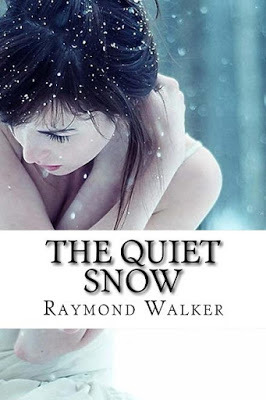
32. WOULD YOU LIKE TO HAVE YOUR BOOKS MADE INTO MOVIES? EVER WRITTEN A SCREENPLAY?
I have written a screen play but I cannot imagine any of my books made into movies, they would not suit filming.
33. HOW MUCH THOUGHT GOES INTO DESIGNING A BOOK COVER?
There are two things that attract you to a book before you lift it and read the blurb. Those two things are the cover and the text. Creating a good cover and looking for a great title are paramount if you wish your book to sell.I do pretty well with covers but badly with titles.
34. WHAT’S YOUR ULTIMATE DREAM?
To live a long and happy life.
35. WRITING IS ONE THING. WHAT ABOUT MARKETING YOU, YOUR BOOKS AND YOUR BRAND? ANY THOUGHTS?
I think that having a brand is important even if it be a minor one. Who will have ever heard of Raymondwalker.co.uk, Mercurialtales,com, Wondroustales.com etc. Few, but they make a mark.
36. ARE YOUR BOOKS SELF-PUBLISHED?
Most of my books are self-published. Four are traditionally published.
37. DESCRIBE YOURSELF IN FIVE WORDS.
Father, writer, fantasist, dogma, thinker.
38. WHAT PISSES YOU OFF MOST?
Time. Is that not the same for all, do you not wish for time to pass more slowly so we can savor the remains of the day.
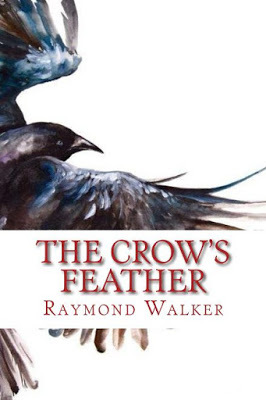
39. WHAT IS THE TITLE OF THE LAST BOOK YOU READ? GOOD ONE?
American Gods by Neil Gaiman.
40. WHAT WOULD MAKE YOU HAPPIER THAN YOU ARE NOW? CARE TO SHARE?
I am pretty good, a Harley, A motor boat, A Ferrari. Kidding.

WEBSITE
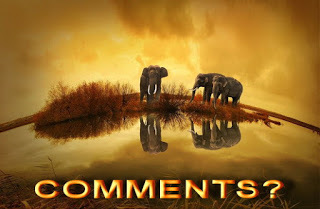
Clancy's comment: Thank you, Raymond. Top interview. Best of luck with future books and sales.
I'm ....


Published on May 13, 2017 15:09
May 12, 2017
13 May 2017 - FACTS ABOUT ANTS
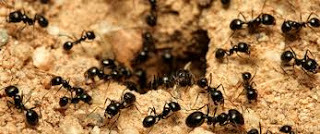
FACTS ABOUT ANTS
G'day folks,
Welcome to the world of ants. Ants are eusocial insects of the family Formicidae and, along with the related wasps and bees, belong to the order Hymenoptera. Ant societies have division of labour, communication between individuals, and the ability to solve complex problems. These parallels with human societies have long been an inspiration and subject of study.
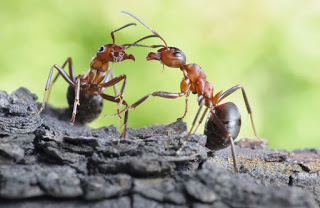
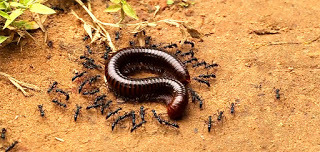
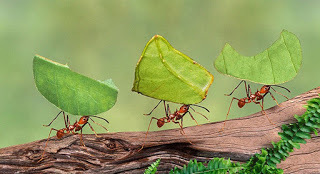
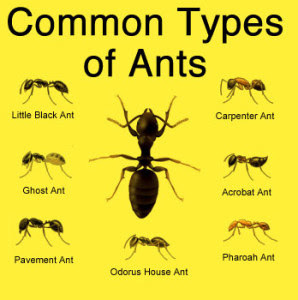
Amazing Facts About the Ant
Ants are social insects which form colonies that range in size from a few dozen predatory individuals living in small natural cavities to highly organised colonies which may occupy large territories and consist of millions of individuals.Ants communicate and cooperate by using chemicals (pheromones) that can alert others to danger or lead them to a promising food source.Ant communities are headed by a queen or queens, whose function in life is to lay thousands of eggs that will ensure the survival of the colony. Workers (the ants typically seen by humans) are wingless females that never reproduce, but instead forage for food, care for the queen’s offspring, work on the nest, protect the community, and perform many other duties.Male ants often have only one role—mating with the queen. After they have performed this function, they may die.More than 20,000 known ant species occur around the world, yet only 12,500 have so far been classified.Ants can lift and carry many many times their own weight. In fact the tiny leafcutter ant (pictured at the top of the page) can lift and carry in its jaws something 50 times its own body weight of about 500mg.Army ants may prey on much larger animals such as reptiles, birds, or even small mammals.Ants represent 25 per cent or more of the animal biomass on the planet.All the ants on the planet weigh about as much as all the humans.Ants emerged along with flowering plants some 130 million years ago; by contrast, Homo, from which humans evolved, diverged only 2 million years ago.
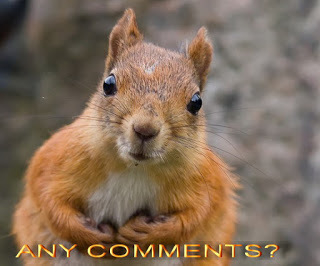
Clancy's comment: I have seen them all over the world, and they certainly are fascinating creatures.
I'm ....
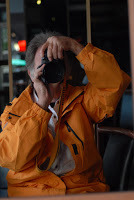

Published on May 12, 2017 14:55



